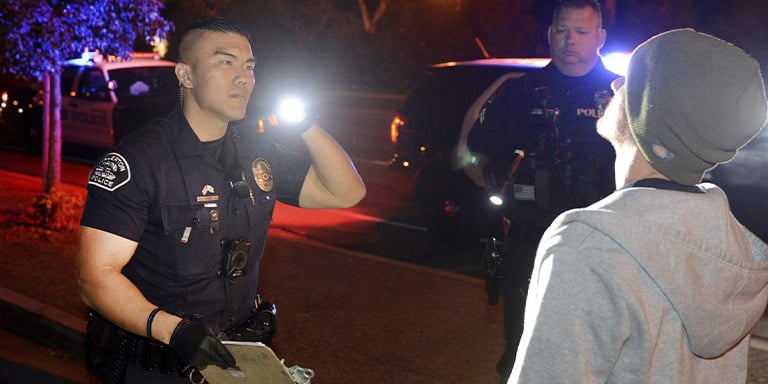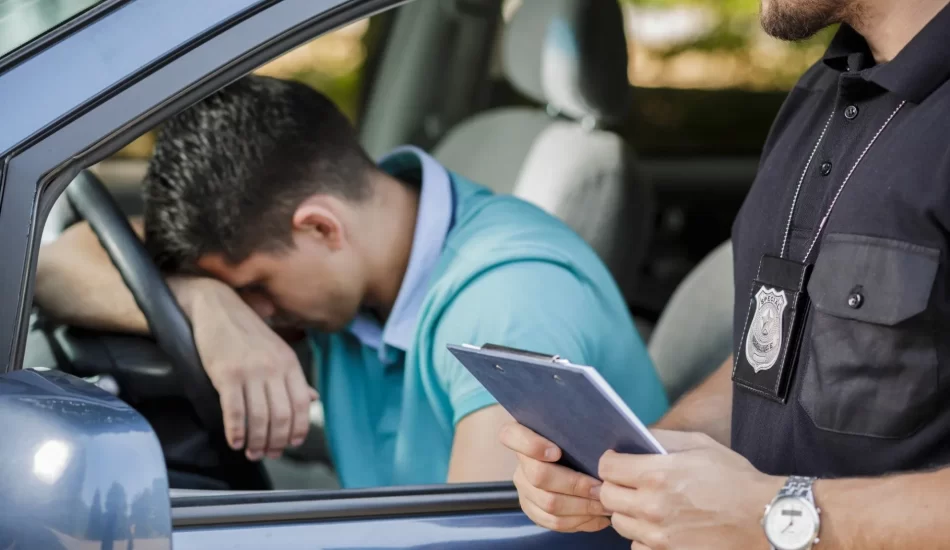A DWI 1st is a first-time Driving While Intoxicated offense, and while it may not seem as severe as a repeat offense, it still carries serious legal consequences. Whether you were pulled over after a night out or made a mistake in judgment, facing a DWI 1st can be overwhelming and stressful.
Most states classify a DWI 1st as a misdemeanor, but that does not mean the penalties are light. Even a first-time offense can lead to license suspension, fines, mandatory alcohol education programs, and even jail time. Additionally, a DWI conviction can impact your insurance rates, employment opportunities, and personal reputation.
So, what should you expect if you’re charged with a DWI 1st? Let’s break it down step by step.
The Legal Definition of a DWI 1st
Each state has specific laws regarding DWI 1st, but generally, a person is charged with Driving While Intoxicated (DWI) when they operate a motor vehicle with a Blood Alcohol Concentration (BAC) of 0.08% or higher. In some states, lower BAC limits apply for drivers under 21 years old or those with commercial driver’s licenses (CDLs).
How Do Officers Determine a DWI 1st?

Law enforcement officers rely on multiple methods to determine whether a driver is under the influence:
- Field Sobriety Tests (FSTs): Officers may ask a driver to perform tasks such as standing on one leg or walking in a straight line to assess coordination and balance. These tests are subjective and may be influenced by nervousness, medical conditions, or poor weather conditions.
- Breathalyzer Test: A handheld device measures BAC levels based on a breath sample. These devices must be properly maintained and calibrated to ensure accuracy. If a breathalyzer is not working correctly, it could produce false positives.
- Blood Tests: If a breathalyzer test is refused or unavailable, a blood sample may be taken to determine alcohol concentration. Blood tests tend to be more accurate, but they must follow strict chain-of-custody rules to avoid contamination or tampering.
- Observational Clues: Slurred speech, bloodshot eyes, the smell of alcohol, slow reaction time, and erratic driving behavior are often used as supporting evidence. However, these indicators can sometimes be caused by fatigue, allergies, or prescription medications.
Refusing to take a breathalyzeror blood test can result in automatic license suspension under implied consent laws, even before a court ruling. In some states, refusal can also lead to additional penalties, such as increased fines and longer license suspensions.
Penalties for a DWI 1st
The penalties for a DWI 1st vary by state but typically include a combination of fines, license suspension, community service, probation, and jail time.
1. Fines and Court Fees
A DWI 1st conviction can lead to substantial fines, which may range from $500 to $2,000, depending on the state and circumstances. Additional court fees, probation costs, and alcohol education program expenses can increase the total financial burden. Some states also impose DWI surcharges that must be paid over several years, adding to the long-term financial impact.
- Court fines may vary based on BAC levels, refusal to submit to testing, or aggravating circumstances such as causing an accident.
- Some states increase the fines significantly if the driver’s BAC was 0.15% or higher.
2. License Suspension
Most states suspend a driver’s license for a period of 90 days to one year for a DWI 1st conviction. Some states offer restricted driving privileges for individuals who install an Ignition Interlock Device (IID), which requires a breath test before starting the vehicle.
- Some states allow occupational licenses for first-time offenders, permitting driving only for work, school, or medical reasons.
- If a driver refuses chemical testing, their suspension may be automatically extended under implied consent laws.
- States with zero-tolerance policies impose harsher license suspensions for drivers under 21 years old.
3. Jail Time and Probation
While some DWI 1st offenders receive probation instead of jail time, others may face mandatory jail sentences. In some states:
- First-time offenders may serve between 24 hours and 6 months in jail.
- Aggravating factors (such as an extremely high BAC, an accident, or an injury) can lead to harsher penalties, including longer jail sentences and increased fines.
- Some states require a minimum number of community service hours as an alternative to jail time.
- Probation terms often include random drug and alcohol testing, mandatory check-ins with a probation officer, and restrictions on alcohol consumption.
4. Mandatory Alcohol Education and Treatment Programs
Many states require DWI 1st offenders to complete alcohol education or treatment programs. These courses are designed to educate drivers on the dangers of impaired driving and may be required before license reinstatement.
- Some states offer in-person group classes, while others provide online options.
- Courts may mandate longer treatment programs for drivers with high BAC levels or repeat offenders.
- Failure to complete the program can result in extended probation, additional fines, or further legal consequences.
The Impact of a DWI 1st on Your Life
A DWI 1st conviction can have long-term consequences, affecting various aspects of your personal and professional life.

1. Employment Consequences
- Some employers have strict zero-tolerance policies for alcohol-related offenses.
- A DWI 1st conviction may disqualify you from certain jobs, particularly those requiring a commercial driver’s license (CDL), security clearances, or operation of heavy machinery.
- If you work in an industry requiring professional licensing, such as law or healthcare, a DWI conviction could jeopardize your career.
- A DWI conviction may make it difficult to obtain new employment, as many companies conduct criminal background checks.
2. Insurance Rate Increases
- A DWI 1st can significantly increase car insurance premiums, as insurers consider offenders to be high-risk drivers.
- Some insurance companies may cancel your policy altogether, requiring you to seek high-risk (SR-22) insurance.
- The financial impact of higher insurance rates can last several years after the conviction.
3. Social and Personal Consequences
- Beyond legal and financial penalties, a DWI 1st can damage personal relationships, reputation, and community standing.
- Friends and family may view the conviction negatively, leading to strained relationships.
- The public record of a DWI conviction can make social interactions difficult, as the stigma surrounding impaired driving is significant.
How to Defend Against a DWI 1st Charge
A DWI 1st charge does not automatically result in a conviction. Several legal defenses can be used to challenge the charges and potentially reduce or dismiss them. An experienced attorney will evaluate all aspects of the case, including the traffic stop, BAC tests, procedural handling, and other factors to build a strong defense strategy.
1. Challenging the Traffic Stop
Law enforcement officers must have reasonable suspicion or probable cause to pull a driver over. If a stop was conducted without proper justification, any evidence obtained may be deemed inadmissible in court.
Key Points for Defense:
- Unjustified Stops: If the officer had no valid reason to pull you over, the case could be dismissed.
- Racial Profiling: If bias played a role in the stop, a legal challenge can be raised.
- Erroneous Interpretation of Driving Behavior: Officers sometimes misinterpret swerving, slow driving, or stopping abruptly as signs of intoxication when they may be due to fatigue, distractions, or road conditions.
- Dashcam and Body Camera Footage: Video evidence can reveal whether the stop was justified or not, and any inconsistencies in the officer’s report can be challenged.
2. Questioning the Accuracy of BAC Tests
BAC (Blood Alcohol Concentration) tests, including breathalyzer and blood tests, are not always accurate. Several factors can lead to false readings or incorrect results.
Potential Issues with BAC Testing:
- Breathalyzer Calibration Errors: If the device was not properly calibrated or maintained, its results may be unreliable.
- Improper Administration of the Test: If the officer failed to follow correct procedures, the test results could be invalidated.
- Mouth Alcohol Contamination: The presence of residual alcohol in the mouth from mouthwash, breath sprays, or certain medical conditions (like acid reflux) can lead to false positives.
- Medical Conditions and Medications: Conditions such as diabetes, GERD (Gastroesophageal Reflux Disease), or hypoglycemia can mimic intoxication symptoms and affect BAC readings.
- Environmental Factors: Breathalyzer devices can be affected by radio frequency interference (RFI) from police radios, cell phones, or nearby power lines.
- Rising BAC Argument: Alcohol takes time to be absorbed into the bloodstream. If the test was conducted long after the traffic stop, it could reflect a higher BAC level than what it was while driving.
3. Procedural Violations
Law enforcement officers must follow strict legal procedures when handling a DWI 1st case. Any violation of constitutional rights or procedural missteps could lead to case dismissal.
Common Procedural Errors:
- Failure to Read Miranda Rights: If you were not informed of your rights, your statements may be inadmissible in court.
- Illegal Search and Seizure: Officers must have a warrant or proper justification to conduct a search. If the search was conducted improperly, evidence could be thrown out.
- Improper Handling of Blood Tests: Blood samples must follow a strict chain of custody to prevent contamination or tampering. Any mishandling or loss of evidence could weaken the prosecution’s case.
- Failure to Provide Legal Representation: If the suspect requested an attorney but was denied access, this could be used to challenge the case.
4. Rising Blood Alcohol Defense
Alcohol absorption varies by individual and can continue to rise after a person stops drinking. This means a driver’s BAC level might have been legal while driving but increased by the time of testing.
How This Defense Works:
- Use of Expert Witnesses: A toxicologist or forensic expert can analyze the time of alcohol consumption and absorption rates to reconstruct the actual BAC level while driving.
- Absorption Rate Variability: Alcohol absorption is influenced by metabolism, body weight, and food consumption. If you were recently drinking, your BAC may have been below the legal limit while driving but increased after the stop.
- Time Delay in Testing: If a blood test was conducted an hour or more after the arrest, it might reflect a higher BAC than when driving.
Final Thoughts on Facing a DWI 1st
A DWI 1st charge is serious, but it does not have to define your future. By understanding the laws, penalties, and defense strategies, you can take the right steps to minimize the impact of a DWI 1st conviction. If you find yourself facing these charges, seeking legal counsel, complying with court requirements, and making proactive decisions can help protect your future.
For individuals dealing with a DWI 1st, taking immediate action is crucial. Avoid making self-incriminating statements, hire a qualified attorney, and follow all legal requirements to ensure the best possible outcome. While the experience can be overwhelming, being informed and proactive is the best way to move forward.


